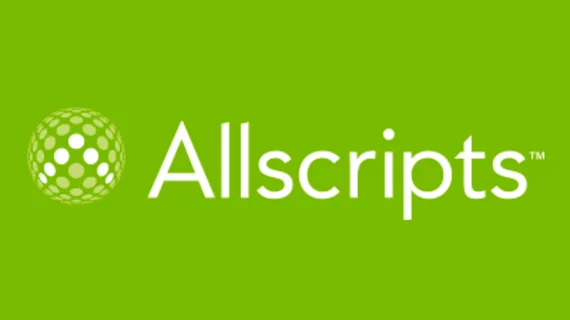Allscripts paying $60M for patient engagement platform HealthGrid
In the latest acquisition by health IT vendor Allscripts, it has purchased HealthGrid, a mobile patient engagement platform, for $60 million in cash and adding its capabilities to the Allscripts FollowMyHealth portfolio.
“It advances our EHR-agnostic approach,” Jim Hewitt, executive vice president of solutions development at Allscripts, said in a statement. “You don’t have to have an Allscripts EHR to make this work. Engaging consumers in their own health is critical to achieving a healthier tomorrow, and enabling meaningful connections between patients and providers is a crucial piece of fostering successful healthcare delivery. It’s a role Allscripts is proud to play—to improve the way patients engage with their own health and their clinicians is to fuel the progress of healthcare itself.”
According to Allscripts, HealthGrid’s platform has helped providers “dramatically improve patient interactions and satisfaction.” The company sees a need to improve the design of patient engagement tools because of the relatively low utilization of patient portals.
Assuming the deal closes as expected in the second quarter of 2018, Allscripts wants to “tightly integrate” HealthGrid into the FollowMyHealth platform and make signing up for a portal unnecessary. Instead, the company said providers would be able to reach their entire patient population by leveraging existing contact information.
The $60 million acquisition is one of the smaller transactions in Allscripts’ recent buying spree. In October 2017, it completed a $185 million cash purchase of McKesson’s health IT business, followed by its $100 million deal for cloud-based electronic health record vendor Practice Fusion—a company once expected to be valued at $1.5 billion.
Before those acquisitions, Allscripts was ranked No. 4 in EHR market share behind Cerner, McKesson and Epic. The company's first quarter financials showed a 24 percent jump in revenue to $514 million, with $314 million in bookings, but with a net loss of $40 million.

